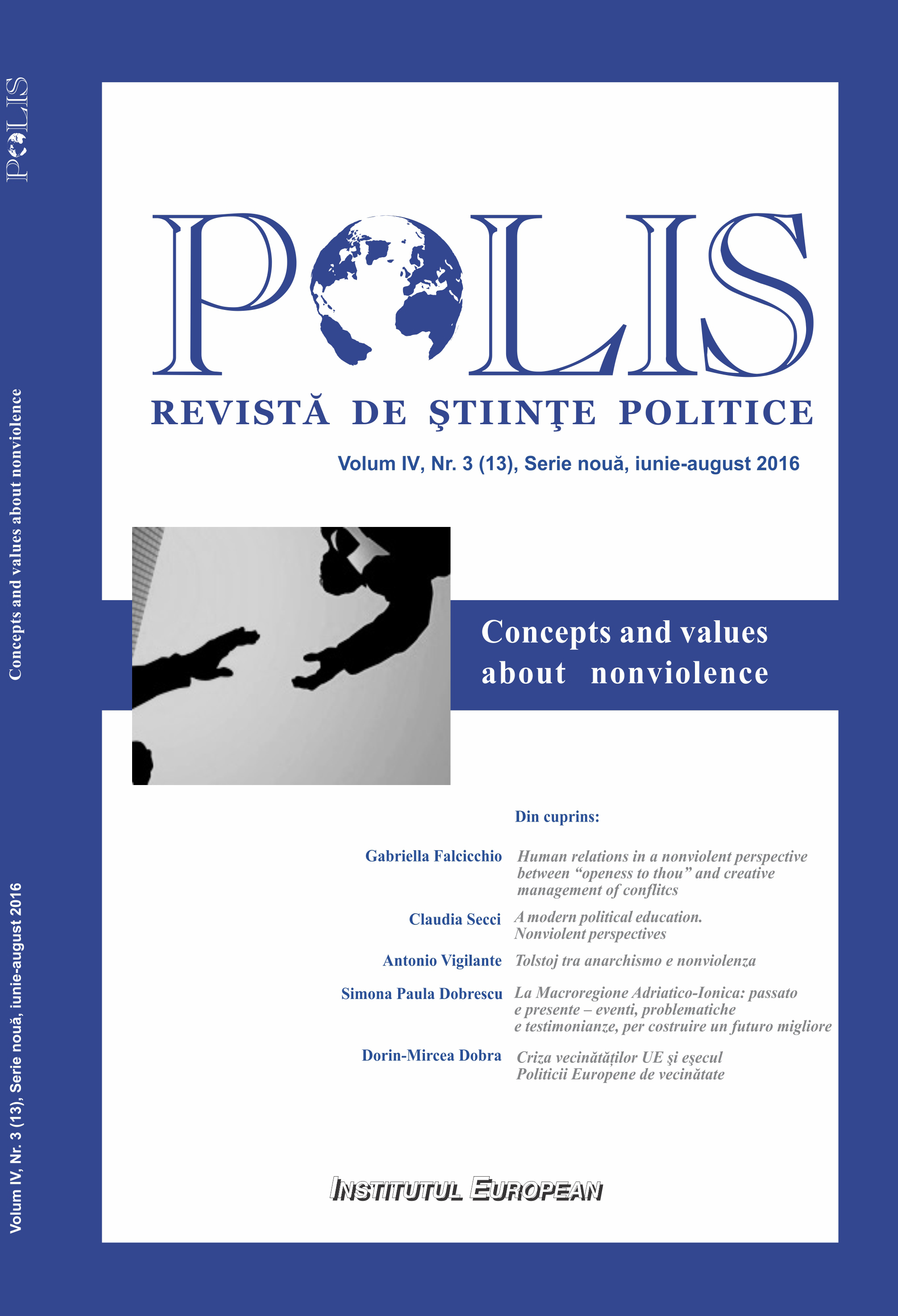Tolstoj tra anarchismo e nonviolenza
Tolstoj between anarchism and nonviolence
Author(s): Antonio VigilanteSubject(s): Political Philosophy, Philosophy of Religion, Politics and religion
Published by: Editura Institutul European
Keywords: Tolstoy; anarchism; nonviolence; peace studies
Summary/Abstract: The study examines the philosophical, religious and political thought of Lev Tolstoy. Because of an existential crisis which brings him almost to suicide, the great Russian writer “converts” himself to a new conception of life, based on unconditional love. On the basis of this vision, which is inspired by Gospel, Tolstoy fights against social injustice and opposes the Orthodox Church, which he accuses to justify the domination of the rich over the poor. According to Tolstoy a State is an institutionalization of social and economic oppression, and therefore must be fought; (but) not, however, with violence, but with the method of nonresistance taught by Gospel. This belief will deeply influence Gandhi, with whom the Russian writer will be in touch for some time. The opposition to the State approaches Tolstoy to anarchists, from which he differs for both the rejection of violence and (for) his religious belief. The author shows that in fact Tolstoy can’t be considered Christian, because he rejects the idea of the divinity of Christ and is skeptical about the very existence of God. All his religious beliefs are, ultimately, rational. His political and ethical proposal is about the overcoming of the ego, considered to be the origin of every kind of violence and of the social oppression of the capitalist system.
Journal: Polis. Journal of Political Science
- Issue Year: IV/2016
- Issue No: 13
- Page Range: 39-62
- Page Count: 24
- Language: Italian

